Filter by subject
Article
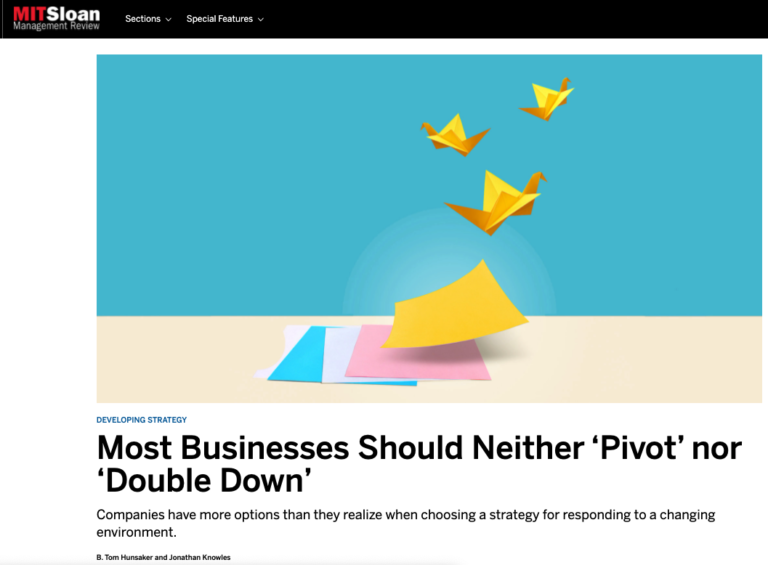
In the third article of our “strategic management of change” series in MIT SMR, we share three key insights from research using the MADStrat framework – the proportion of businesses that should adopt change in the form of magnitude vs. activity vs. direction; the need to focus on being both relevant and distinctive; and the requirement to consider the perspective of multiple stakeholders in order to create strategies that are sustainable.
Article
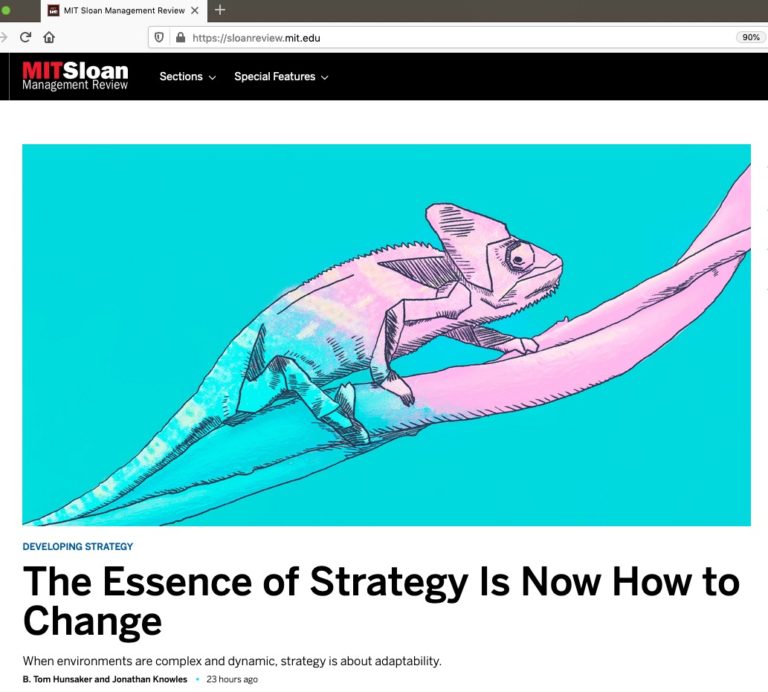
Traditional approaches to strategic planning suffer from two serious limitations – namely they are based on the assumptions of industry stability and shareholder primacy. This article puts forward an alternative framework that assumes that change is inevitable and that fit-to-purpose and relative advantage among a broad range of stakeholders is the basis for sustainable business success.
Article
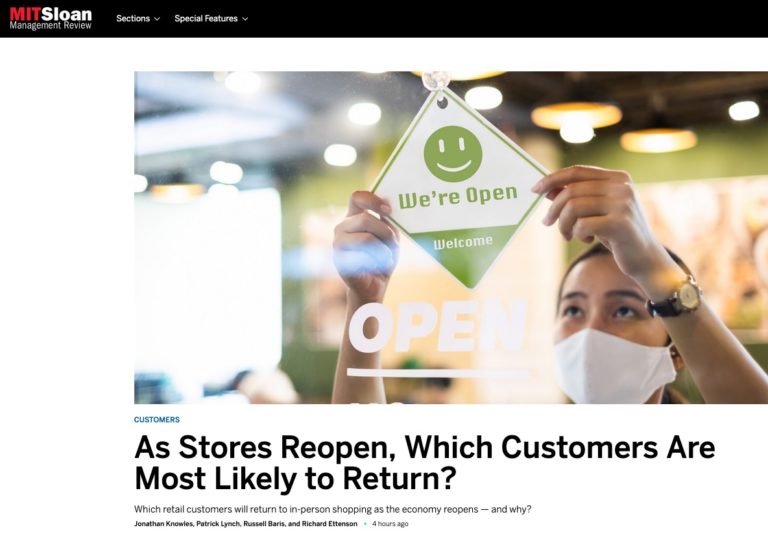
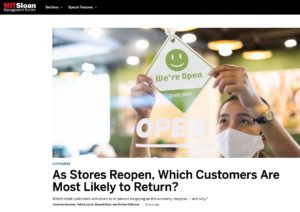
COVID and the associated lock downs have dramatically impacted shopping behavior and rebalanced priorities for retail customers. This article reviews the impact on consumer behaviors based on research among a representative sample of more than 5,000 U.S. households and identifies five major shopper segments.
Article
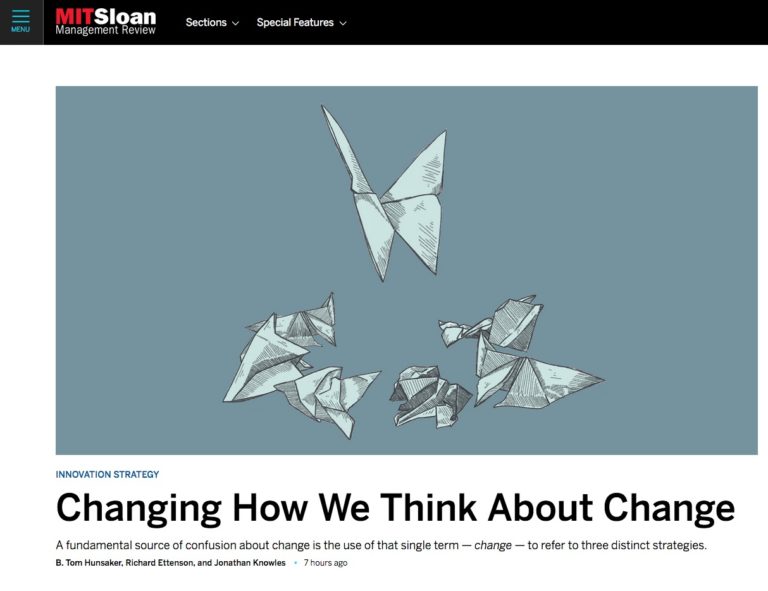
A fundamental source of confusion among executives is the use of a single term to refer to three very different strategic responses to business challenges. We discuss how change can involve magnitude, activity or direction, and how executives can assess what form of change is appropriate in their context.
Article
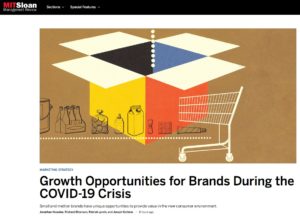
Consumers have adapted their shopping routines due to COVID with more than 50% reporting they had made purchases from “brands that were new to them” and that these new brands accounted for more than 30% of their purchases. We use the SAVE framework to show how brands can adapt to the changes to consumer behavior and attitudes in order to innovate how new value can be created and delivered.
Case Study
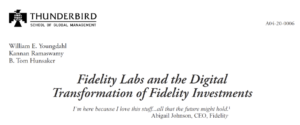
The case analyzes attempts by Fidelity Investments to navigate the changing financial services landscape through the establishment of Fidelity Labs, an in-house innovation engine that was chartered to experiment, validate and develop new technological solutions. It explores some of the business implications of core technological changes that are sweeping through the financial services industry and in doing so helps them gain a better appreciation of the potential impacts of the 4th Industrial Revolution as it relates to financial services and investments.
Case Study
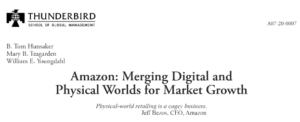
Retail shopping models had long been considered binary – either e-commerce or bricks & mortar – but in practice we observe a broad spectrum between these two extremes. This case explores the many hybrid models emerging like ordering online and picking up in-store (Walmart’s Grocery Pickup), shopping in-store and ordering online (Warby Parker and Bonobos made their name in this space – largely facilitating the showroom behavior of consumers), digitally-enhanced physical shopping (several companies hold patents in this space with virtual reality promising to push this model), and many others.
Article
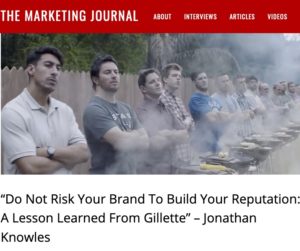
Gillette’s campaign “The Best Men Can Be” prioritizes social approval over customer demand – and that’s a strategic mistake. Your organization’s license to operate relies on achieving buy in from a broad range of stakeholders, but your success as a business ultimately depends on engaging with customers in a way that motivates them to buy.
Case Study
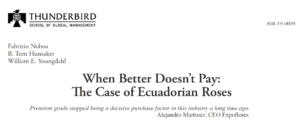
Despite globally recognized product quality (primarily measured in terms of longer vase life), Ecuadorian rose growers were finding it extremely difficult to achieve attractive levels of profitability. As one of Ecuador’s chief exportable products, and generating more than 100,000 jobs, the industry needed to change. How could this small Latin American country re-imagine how it competes in this global market in 2018 and beyond?
Case Study
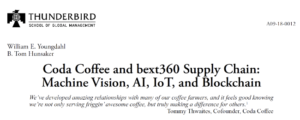
In 2018, Coda Coffee was paying three times the commodity exchange rate for raw coffee beans and their supply chains reached from Denver all across the world. How could AI, machine vision, blockchain, and IoT help Coda Coffee – and their suppliers – ensure that this premium pricing was translating into higher income for the coffee farmers?